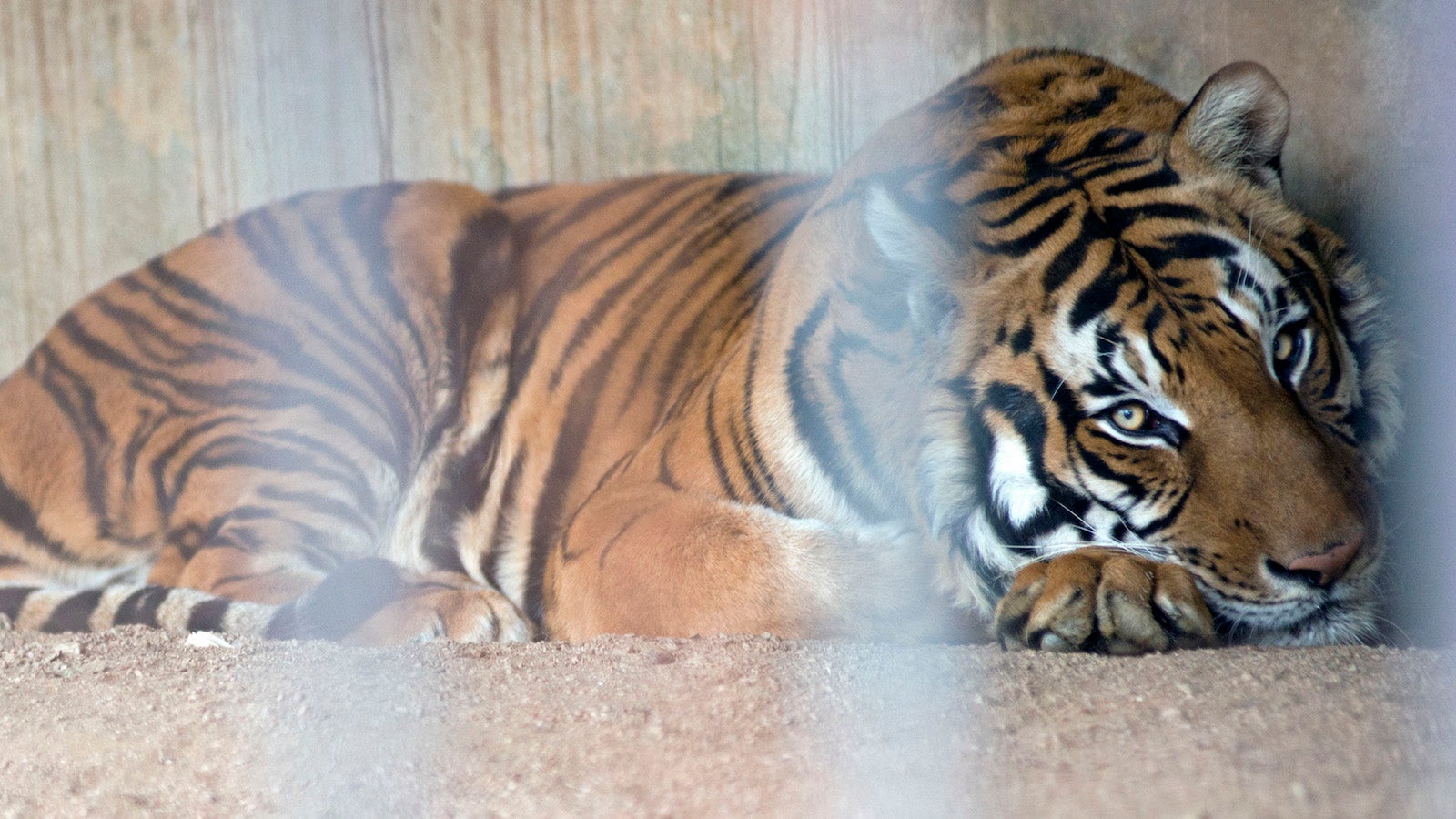Tinder is begging users to stop posting tiger selfies
A stereotype of online dating holds that people will lie about their age and physical attributes. But the real “cougars” of dating apps are those who think pictures of themselves posing with captive tigers make them look some kind of sexy.


A stereotype of online dating holds that people will lie about their age and physical attributes. But the real “cougars” of dating apps are those who think pictures of themselves posing with captive tigers make them look some kind of sexy.
Following a request from People for the Ethical Treatment of Animals, last week the dating app Tinder encouraged users to take down their tiger selfies. In a blog post, the company said, “Posing next to a king of the jungle doesn’t make you one… It’s time for the tiger selfies to go.”
This is the latest move by a growing number of companies to tackle the problem of dubious “wildlife” attractions. Well-meaning tourists are often duped by wranglers in countries such as Indonesia and Thailand, unaware of the cruelty that animals endure in captivity. If you can hug, ride, or take a selfie with a tiger, elephant, dolphin, or any other wild animal, chances are that the animal has been abused.
Research conducted last year by the University of Oxford’s Wildlife Conservation Research Unit found that three out of four wildlife tourist attractions involve some form of animal abuse or conservation concerns, and up to 550,000 wild animals are suffering in these venues. They estimate that approximately 110 million people unwittingly visit wildlife tourist attractions each year, oblivious to the animal abuse involved.
Used as props to empty tourists’ wallets, tiger, lion, and bear cubs who are forced to pose for photos are prematurely removed from their mothers so they can be trained to tolerate contact with humans. They often spend their lives in cramped cages—or worse. In nature, elephants walk up to 30 miles and are active for 18 hours every day, but elephants who are used for rides are routinely shackled and unable to get an adequate amount of exercise.
It’s a growing problem. In just five years, there has been a 30% increase in the number of elephants at tourism venues in Thailand, the world’s largest promoter of elephant camps, where the egregiously cruel and prolonged phaajaan ritual is used to break the spirits of baby elephants and force them to submit to humans. Even when you think you’re doing the right thing, you’re probably not. Travelers are often duped into believing these outfits’ claims that they are helping animals by “rescuing” them; WildCRU found that 80% of people left positive reviews on TripAdvisor about venues known to have poor animal welfare.
Travel companies have been meeting this challenge head-on. TripAdvisor recently stopped booking elephant treks, tiger encounters, and “swim with dolphins” outings, and it even set up an informational portal on its website to help users understand why certain attractions were not offered. Expedia quickly followed suit and committed to ending bookings for some wildlife activities. Dozens of other agencies worldwide have also stopped booking elephant rides and dolphin-swim programs.
The travel industry is recognizing that conscientious travelers condemn cruelty to animals. But anyone who thinks that posing with tigers makes them a more appealing mate may find themselves with only their selfies for company.